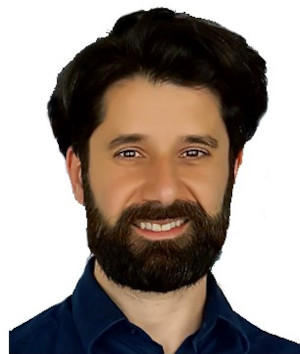
Camillo Porcaro is an Associate Professor in Bioengineering at the Department of Neuroscience of the University of Padova.
He is a computational neuroscientist with a core interest in developing analytical methods for extracting information from non-invasive measures of brain activity. His research focuses on identifying functional brain sources from data obtained through neuroimaging techniques. In 2008 he defended with honours his doctoral thesis in “Functional Neuroimaging: from Cells to Systems” at the Institute of Advanced Biomedical Technologies (ITAB), University of Chieti, Italy. The same year, he became a Postdoctoral Fellow at the University of Birmingham – School of Psychology, using simultaneous EEG/fMRI. In 2011, he joined the Institute of Neuroscience, Newcastle University, after gaining a highly competitive independent research position.
From October 2011 to September 2021, he was an Independent Researcher at the Institute of Cognitive Sciences and Technologies (ISTC) – National Research Council (CNR), Rome, Italy. Furthermore, in 2014 and 2015, he was invited as Visiting Professor at the Neural Control of Movement Lab, Department of Health Sciences and Technology ETH, Zurich, Switzerland and from 2015 to 2022 as an Adjunct Professor at the Department of Information Engineering – Polytechnic University of Marche, Ancona (Professor of Bio-imaging and Brain Research at the Department of Biomedical Engineering). In addition, from 2016 to 2020, he was Visiting Professor at the Department of Human Kinesiology, Movement Control & Neuroplasticity Research Group, KU Leuven, Belgium and from 2018 to 2021, he was Head of the Research hdEEG Lab at S. Anna Institute and Research in Advanced Neurorehabilitation (RAN), Crotone, Italy. Finally, since October 2021, he has been appointed Associate Professor at Padua University – Department of Neuroscience. His most successful contributions have involved source extraction with advanced methods, including Independent Component Analysis (ICA) and a modification of this algorithm called Functional Source Separation (FSS). Furthermore, he developed various temporal and spectral constraints (the basis for FSS algorithms) for extracting and validating primary cortical areas. Recently, he has started applying
FSS to EEG data recorded in the MRI environment to improve the quality of EEG data at the individual study level. His recent research focuses on developing functional constraints for the identification of complex cortical networks and the identification of resting-state functional networks (RSN) from EEG and fMRI recordings with the ultimate goal of characterising the neuronal dynamics of these networks using complex nonlinear methods such as Fractal Dimension.
He currently holds the following roles:
- Associate Professor at the Department of Neuroscience (ING-INF/06).
- Academic Board Member of the PhD in Neuroscience (PNC).
- IEEE Senior Member.
- External expert assisting the European Research Executive Agency.
- Honorary Senior Research Fellow – School of Psychology, Birmingham University Imaging Center (BUIC), Birmingham, UK.
- Ordinary Member of the National Group of Biomedical Engineering.
National scientific qualifications (ASN):
- Associate Professor in Bioengineering (09/G2 – ING-INF/06).
- Associate Professor in Physiology (BIO/09 – 05/D1)

